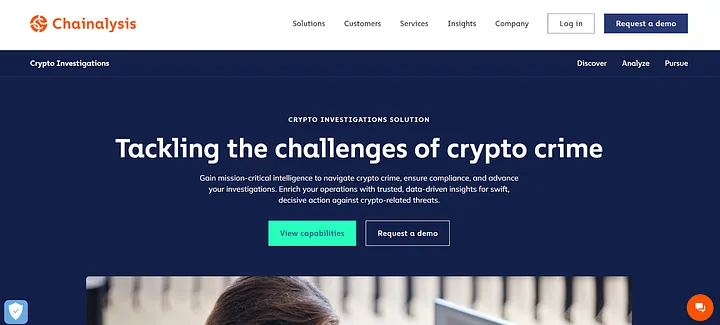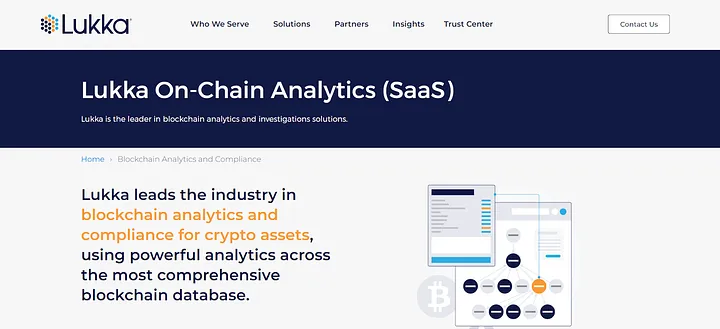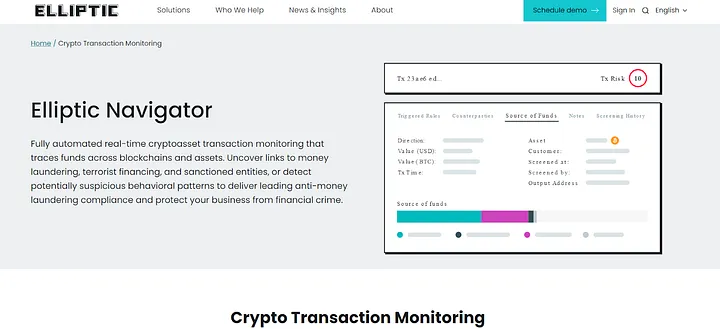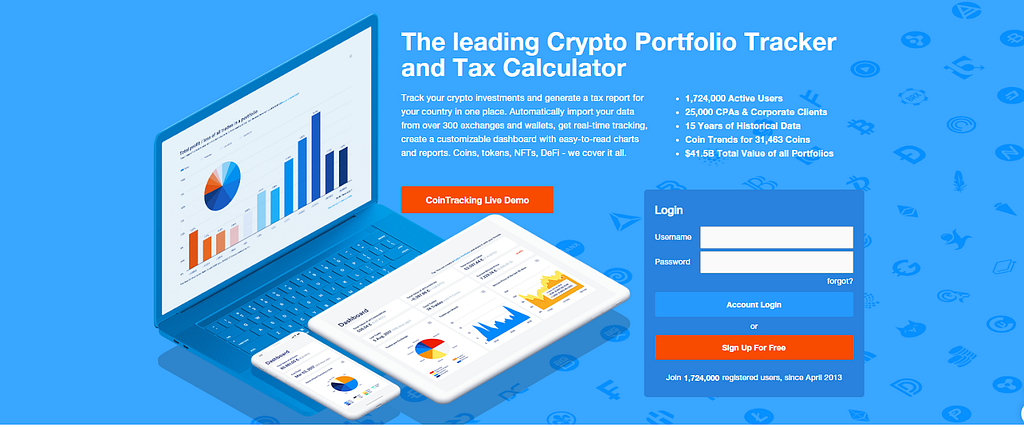- Home
- Features
- Business
- Active
- Sports
- Shop
Top Insights
Top 10 Tools for Tracking Stolen Crypto
If you’re reading this, chances are you’re either fascinated by cryptocurrency or on a mission to protect digital assets. Either way, you’re in the right place. Today, we’re diving into the cutting-edge world of crypto tracking tools — the unsung heroes in the fight against digital theft.
Why Do These Crypto Tracking Tools Matter?
In the rapidly evolving world of cryptocurrency, the need for robust tracking tools has never been more critical. Here’s why these tools are essential:
- Combating Cryptocurrency Theft: As the value and adoption of cryptocurrencies grow, so does the sophistication of cybercriminals. These tools are crucial in tracing stolen funds, potentially leading to their recovery and the identification of perpetrators.
- Ensuring Regulatory Compliance: With increasing government scrutiny, crypto businesses must demonstrate adherence to anti-money laundering (AML) and know-your-customer (KYC) regulations. Tracking tools provide the necessary transparency to meet these requirements.
- Investigating Financial Crimes: Law enforcement and forensic investigators rely on these tools to unravel complex cases involving cryptocurrency, from fraud and money laundering to terrorist financing.
- Protecting Exchanges and Users: Crypto exchanges use these tools to monitor transactions, identify suspicious activities, and safeguard their platforms and users from potential threats.
- Supporting Due Diligence: For businesses and individuals dealing with cryptocurrency, these tools offer a way to verify the legitimacy of transactions and ensure they’re not inadvertently engaging with tainted funds.
- Enhancing Trust in the Crypto Ecosystem: By making illicit activities more difficult, these tools help build confidence in the cryptocurrency market, encouraging wider adoption and investment.
- Recovering Lost or Stolen Assets: In cases of theft or loss, these tools can be invaluable in tracing the movement of funds across multiple wallets and exchanges, increasing the chances of recovery.
Understanding and utilizing these tracking tools is no longer optional — it’s a necessity for anyone serious about cryptocurrency security, compliance, and investigation. As the crypto landscape continues to evolve, these tools serve as a critical line of defense against those who would exploit the system for illicit gains.
Top 10 Crypto Tracking Tools
1. Moneyflow

Bitquery Moneyflow sets itself apart with several key features that make it an indispensable asset in the crypto investigator’s toolkit:
1. Auto-tracing capabilities: Moneyflow’s advanced algorithms can automatically follow the trail of cryptocurrency transactions across multiple hops and chains, significantly reducing the time and effort required for manual tracing.
2. Comprehensive counterparty information: The tool provides detailed insights into the entities involved in transactions, helping investigators build a clear picture of the network surrounding stolen funds.
3. Multi-chain investigation: With support for over 40 blockchain networks, Moneyflow allows investigators to track assets as they move across different cryptocurrencies and platforms, a crucial capability in today’s diverse crypto landscape.
4. Case management and reporting: Moneyflow offers robust features for organizing investigations, collaborating with team members, and generating detailed reports, streamlining the entire investigative process.
Bitquery’s CoinPath Moneyflow sets itself apart as a superior crypto-tracking solution through its advanced features and investigative approach to blockchain analysis. Here’s how it works and why it’s better than other tools:
1. Comprehensive Data Ingestion and Real-Time Syncing
Unlike many tools that rely on periodic updates, Moneyflow continuously syncs with supported blockchains. This ensures investigators always have access to the most up-to-date transaction data, crucial for tracking fast-moving crypto assets.
2. Intuitive Visual Representation
While other tools may offer basic transaction graphs, Moneyflow presents its findings through highly intuitive and interactive graphical interfaces. This allows investigators to easily visualize the flow of funds and understand complex relationships between different addresses, making it simpler to unravel sophisticated criminal networks.
3. Cross-Chain Analysis
In today’s diverse crypto landscape, funds often move between different blockchains. Moneyflow excels at tracking these cross-chain transfers, providing a comprehensive view of an asset’s journey that many other tools struggle to match.
4. Enhanced Mixed Funds Tracking
Moneyflow takes mixed funds tracking to the next level by offering various accounting methods for fund selection:
- FIFO (First In, First Out)
- FILO (First In, Last Out)
- LIFO (Last In, First Out)
- PIFO (Percentage In, First Out)
This flexibility allows investigators to trace the identity of mixed funds more effectively than tools with limited accounting options. Each method provides a different approach to tracing the identity and allocation of specific funds within a pool of intermingled resources, giving investigators the power to choose the most appropriate method for each unique case.
5. Comprehensive Reporting and Collaboration Features
Moneyflow goes beyond basic data export by offering detailed, customizable reports. Investigators can easily share results with team members or legal authorities, streamlining the collaborative aspects of complex investigations.
Top 10 Crypto Investigation Tools 2024 – CoinCodeCap
2. Chainalysis

Chainalysis has established itself as a pioneer in the world of cryptocurrency investigation:
- Comprehensive blockchain coverage: Chainalysis supports a wide range of cryptocurrencies, allowing investigators to track transactions across multiple chains.
- Advanced entity identification: The platform excels at identifying and categorizing wallet addresses, helping investigators understand who they’re dealing with.
- Reactor investigation tool: This intuitive graphical interface allows investigators to visualize transaction flows and entity relationships.
- KYT (Know Your Transaction) compliance tool: Helps businesses and financial institutions monitor transactions for suspicious activity in real-time.
- Market intelligence: Chainalysis provides valuable insights into market trends and behaviors, useful for both investigators and strategists.
Top OSINT Tools for Investigating Cryptocurrencies
3. Coinfirm (Now Lukka)

Coinfirm is a prominent player in the cryptocurrency tracking and compliance space:
- Risk Scoring and Transaction Monitoring: Coinfirm identifies suspicious activity based on real-time data and historical analysis to combat money laundering and terrorist financing.
- Regulatory Compliance Tools: The platform offers solutions to help businesses comply with AML and CTF regulations across different jurisdictions.
- Blockchain Forensics: Coinfirm’s investigative tools allow tracing stolen funds and uncovering complex financial networks on the blockchain.
- Counterparty Identification: Coinfirm helps identify the real-world entities behind cryptocurrency wallets, but due to the anonymity of some blockchains, complete identification may not always be possible.
Top Crypto Investigation Services
4. Elliptic

Elliptic leverages artificial intelligence to provide cutting-edge crypto forensics:
- Holistic screening: Elliptic’s tools screen crypto wallets, transactions, and assets across multiple blockchains simultaneously.
- Nexus: The world’s largest crypto dataset, which helps investigators identify and categorize addresses quickly.
- Navigator for investigations: An intuitive interface for visualizing and exploring blockchain relationships and transaction flows.
- Lens for crypto detection: An API solution that allows businesses to integrate Elliptic’s risk insights directly into their own systems.
- AI-driven insights: Elliptic’s use of machine learning helps to identify new patterns and techniques used by bad actors in near real-time.
10 Best Blockchain Analysis Tools – Bitquery
5. Crystal Blockchain

Crystal Blockchain stands out for its ability to integrate seamlessly with existing systems:
- API-first approach: Crystal’s solutions are designed to be easily integrated into existing workflows and systems.
- All-in-one analytics: The platform combines risk management, investigation, and compliance tools in a single solution.
- Customizable risk scoring: Users can adjust risk parameters to align with their specific needs and risk tolerance.
- Entity clustering: Crystal excels at grouping related addresses, helping investigators understand the broader context of transactions.
- Regulatory compliance tools: The platform offers solutions to help businesses comply with AML and CTF regulations across different jurisdictions.
10 Best Blockchain Forensics Tools
6. CoinTracking

CoinTracking offers comprehensive cryptocurrency portfolio management and tax reporting:
- Multiple import options: Supports API connections, CSV imports, and manual entry from over 100 exchanges and wallets.
- Real-time portfolio valuation: Provides up-to-date valuations of your crypto holdings across multiple platforms.
- Tax reporting: Generates tax reports for various countries, helping users stay compliant with local regulations.
- Historical data analysis: Offers insights into past performance and helps identify profitable trading strategies.
- Price alerts: Allows users to set customizable alerts for price movements of specific cryptocurrencies.
7. Whale Alert

Whale Alert is a specialized service that tracks large cryptocurrency transactions:
- Real-time alerts: Provides instant notifications of significant transfers across major blockchains.
- Multi-chain support: Tracks transactions on Bitcoin, Ethereum, Ripple, Tron, and other major networks.
- Transaction details: Offers in-depth information about each large transfer, including sender and receiver addresses.
- Exchange monitoring: Identifies transfers to and from known exchange wallets.
- Historical data: Allows users to review past large transactions and analyze patterns.
8. Blockchain.com Explorer

Blockchain.com’s Explorer is a versatile tool for tracking and analyzing crypto transactions:
- Multi-cryptocurrency support: Provides data for Bitcoin, Ethereum, Bitcoin Cash, and other major cryptocurrencies.
- Address lookup: Allows users to search for specific wallet addresses and view their transaction histories.
- Block explorer: Offers detailed information about individual blocks on various blockchains.
- Network statistics: Provides overall network data such as hash rate, transaction volume, and mempool size.
- API access: Offers developers the ability to integrate blockchain data into their own applications.
Each of these tools brings unique strengths to the table, catering to different aspects of cryptocurrency investigation and compliance. The choice between them often depends on the specific needs of the organization, the types of investigations being conducted, and the level of integration required with existing systems.
Common Crypto Investigation Scenarios
Crypto investigation tools are employed in a variety of scenarios. Here are some of the most common use cases:
A. Resolving Disputes Between Customers and DEX (Decentralized Exchanges)
- Locked accounts: Investigating cases where users are unable to access their funds due to technical issues or security measures.
- Frozen assets: Tracing the movement and current status of assets that have been frozen by a DEX.
- Chargebacks: Analyzing transaction histories to resolve disputes related to unauthorized transactions or errors.
B. SEC Investigations and Civil Defense
Crypto tracking tools play a crucial role in regulatory investigations, helping to:
- Trace the flow of funds in potential securities fraud cases
- Identify parties involved in unregistered securities offerings
- Support compliance with SEC regulations and information requests
C. Business and Investment Fraud
These tools are invaluable in uncovering:
- Ponzi schemes operating with cryptocurrencies
- Fake ICOs (Initial Coin Offerings) and token sales
- Misappropriation of investor funds
D. Wire and Bank Fraud
Investigators use crypto tracing tools to:
- Follow the money trail in cases where traditional wire transfers are converted to crypto
- Identify connections between bank accounts and crypto wallets
- Trace funds across multiple jurisdictions and financial systems
E. Forfeiture Proceeding Representation
In asset forfeiture cases, these tools help:
- Establish the origin and path of potentially illicit funds
- Identify all related wallets and exchanges involved
- Provide evidence for or against the forfeiture of crypto assets
F. Petition for Remission Preparation
Crypto investigation tools assist in:
- Proving rightful ownership of seized crypto assets
- Tracing the path of legitimate funds that may have been mixed with illicit ones
- Supporting claims for the return of wrongfully seized assets
G. Divorce Proceeding Crypto Forensic Investigations
In divorce cases involving crypto assets, these tools are used to:
- Uncover hidden cryptocurrency holdings
- Trace the purchase and sale of crypto assets during the marriage
- Determine the current value and location of crypto assets for equitable distribution
Each of these scenarios demonstrates the versatility and importance of crypto investigation tools in today’s digital asset landscape. As cryptocurrencies continue to integrate with traditional finance and everyday transactions, the need for sophisticated tracing and analysis tools will only grow.
The Future is Bright (and Traceable)
As we’ve explored, the world of crypto tracking is rich with powerful tools designed to combat digital theft and ensure regulatory compliance. Bitquery Moneyflow stands out for its auto-tracing capabilities and multi-chain investigation features, while other tools like Chainalysis, Coinfirm, and Elliptic each bring unique strengths to the table.
Looking ahead, we can expect seamless cross-chain tracing and tools that balance transparency with privacy. The future of crypto tracking is likely to see predictive crime prevention and deeper integration with traditional financial systems.
As the crypto landscape evolves, staying informed is crucial. Whether you’re an investor, business owner, or in law enforcement, take the time to understand these tools and how they can serve your needs. Remember, in the world of cryptocurrency, knowledge and the right tools are your best defense against digital theft and your strongest allies in ensuring compliance and security.
— — — — — –
Written by Harshil
Tools for Tracking Stolen Crypto was originally published in Coinmonks on Medium, where people are continuing the conversation by highlighting and responding to this story.
Recent Posts
Categories
Related Articles
From Vesting Plans to Binance Wallets: A Deep Dive into TRUMP Token’s Distribution
More than a month after Donald Trump, the 47th U.S. president, launched...
ByglobalreutersFebruary 21, 2025North Korea’s Lazarus Group now using crypto gifts to breach security defenses
The North Korean-linked Lazarus Group has adopted a new method of breaching...
ByglobalreutersFebruary 21, 2025Bybit crypto exchange hit by the largest theft of any kind, ever
It was a tough day in the market but that's nothing compared...
ByglobalreutersFebruary 21, 2025The Leading Crypto to Buy Before March? Analysts Say This Altcoin Could Lead the Market
Discover why RCO Finance (RCOF) is the best crypto to buy before...
ByglobalreutersFebruary 21, 2025



Leave a comment